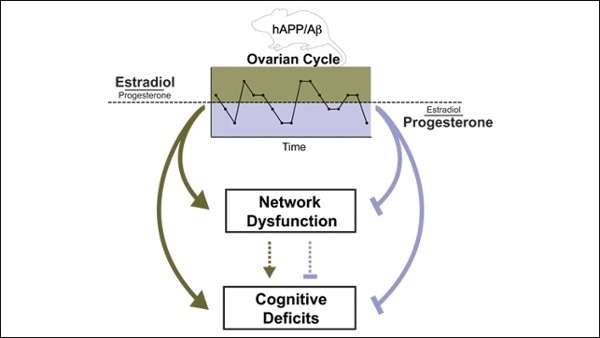Dec 5 2018
Female mice destined to develop Alzheimer’s-like pathology and related cognitive impairments display a unique pattern of fluctuation in sex hormones during the ovarian cycle, finds new research published in eNeuro. This study suggests the natural reproductive cycle may provide a new window into Alzheimer’s Disease (AD) risk among young women.

AD begins to develop decades before the first clinical symptoms emerge. This means the disease may already be progressing during a woman’s reproductive years. Dena Dubal and colleagues asked whether the hormones — specifically estrogen — released during the natural ovarian cycle promote disease progression in at-risk individuals.
Despite similarities in cycle length and fertility, the researchers found AD model mice spent a greater portion of time in stages with high estrogen levels than control mice. These stages were associated with impaired learning and memory and abnormal activity in AD-affected brain regions. The researchers also observed a sharp increase in beta-amyloid production during one of the high-estrogen stages. These findings emphasize the importance of incorporating female biology into the study of nervous system disorders.